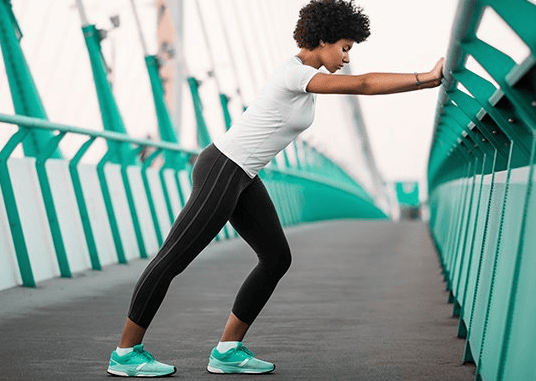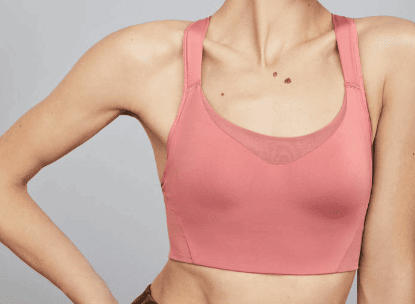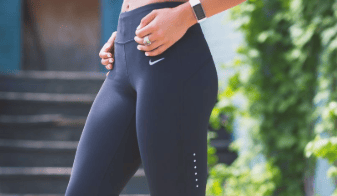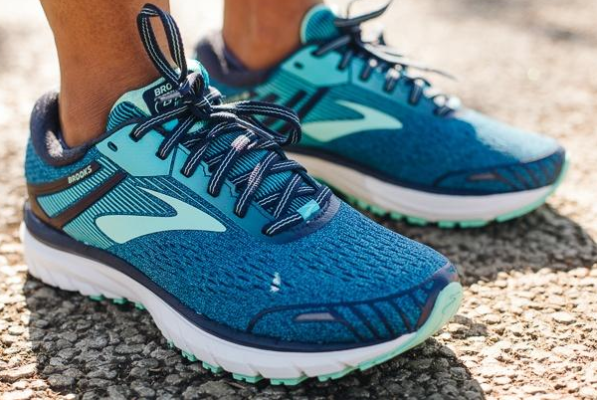When Should You Replace Your Workout Clothes?
-
 By
Sophia Grant
By
Sophia Grant
It’s no secret that exercise is good for our health. For one thing, it benefits our muscles and bones. Not only that, but it lowers our risk of chronic disease such as diabetes, asthma, and heart disease. On top of all that, it has psychological benefits too. For example, it can boost self-confidence and mood!
Considering that, there’s really no reason not to incorporate exercise into your schedule. The key is to pick something that interests you. For instance, you can lift weights at the gym or go for a run around the neighborhood every night. Some activities might be more intense than others, but at the end of the day, you’ll still get your health benefits.
Why You Should Wear Workout Clothes
Depending on the activity, you might need to get yourself some specialized gear. Take cycling, for instance—it requires you to have a bike and helmet (at the very minimum). No matter what you’re doing, though, you should always wear workout clothes aka activewear. Can you imagine exercising in a pair of jeans? That’s just a disaster waiting to happen! Cotton t-shirts are just as bad—they will absorb your sweat so that you’ll feel clammy and gross during your workout session.
How Are Workout Clothes Different From Regular Clothes?
What makes workout clothes different from everyday clothes? The fabric. That’s right, the former is made from special materials that are specifically designed for exercise. More specifically, they are made from synthetic fibers (as opposed to natural fibers such as cotton or linen). Some of the most common ones used in activewear include polyester, nylon, rayon, viscose, and spandex. How are these materials different from standard fabrics? They are durable and flexible. In other words, you won’t have to worry about the garments restricting your movement—you’ll be able to move however you want.

Second of all, they have a moisture-wicking finish. What does this mean? This means that sweat won’t stay trapped in the fabric—it will move to the surface and evaporate. As you can imagine, that will allow you to stay dry during your work out. Let’s face it—who likes exercising with a shirt that’s wet with sweat? It’s not exactly the most comfortable! Don’t get me wrong, though—you’ll still have to wash the clothes once you get home. If anything, it only prevents you from getting that icky clammy feeling at the gym.
Taking Care of Your Workout Clothes
Ideally, you want to wash your workout clothes as soon as you get home. After all, they’re probably sweaty! The last thing that you’d want to do is to take it off and forget about it for a week. By the time you actually do the laundry, they will be gross and smelly!
Why? Contaminants. As it is, these agents thrive on moist environments—this includes sweaty workout clothes. Before you know it, they will have taken over the fabric! Not only would this lead to an odor, as mentioned above, but it can cause infections assuming that there’s an open wound.
Don’t want to deal with this issue? Then be sure to take proper care of your athletic clothes. It doesn’t matter whether you put it into the washer or wash it by hand—as long as you use detergent and give it a good wash! Just remember to read the instructions on the care tag label—one wrong step and you can easily shorten the life of your shirt or pants!
Table of Contents
ToggleHow to Know When to Replace Your Workout Clothes
Workout clothes are generally more durable than normal clothes. However, that doesn’t mean that they’ll last forever. Wear and tear will happen, especially if you wear them on a regular basis! Don’t worry, though, it’ll probably be a while before they’re no longer suitable for wearing (assuming that you didn’t get them from Alibaba).
Not sure whether or not your workout clothes are nearing the end of their lifespan? No worries, that’s what we’re here to discuss! Below, we’ll be going over a few different types of activewear and when to replace them!
1. Sports Bras

Sports bras are essential when it comes to exercising (for women, anyway). After all, too much movement can cause the ligaments around the breast to tear! How do sports bras help? They hold the breasts firmly in place during your workout. In doing so, you won’t have to worry about there being any damage to the area!
Over time, however, they will wear out. More specifically, the elastic will become loose—to the point where it’ll no longer be able to hold your breast snugly in place. While this can happen to any sports bra, those that are washed frequently (especially those that are machine washed) are more susceptible. to damage.
Generally speaking, you should replace your sports bra after one year. Obviously, you’d want to do so sooner if you do high-impact workouts! How can you tell that it’s time to toss them? You might experience chafing or the bra might ride up when you lift your arms. In some cases, you might also notice extra movement in the chest area during your workout.
2. Compression Garments

Compression garments are typically worn by athletes. They come in various forms including shirts, shorts, socks, sleeves, and tights. Close-fitting, they provide external compression to the body, which helps to promote blood flow. In doing so, it enhances athletic performance during exercise. Not only that, but it reduces muscle fatigue and injury.
Eventually, however, the elasticity in the fabric will wear out. As you can imagine, that will render the garment useless. After all, the whole point is to have the compression! Without it, a compression shirt will just become a normal shirt.
How often should you replace compression garments? That depends on how you often you wear them—someone who exercises with them on every day will need to replace them sooner than someone who only wears them once a week. In general, however, you can expect them to last anywhere from six months to a year. If they start to feel loose, it might be time to chuck them!
3. Tights and Leggings

Leggings and tights are more than just a fashion statement—they’re one of the best things that you can wear to the gym. What makes them so great? They’re comfortable and allow for a full range of motion. Made from thin materials, most are breathable and moisture-wicking.
As with all clothes, however, they will wear out with repeated wear—this is especially true if you wash them frequently. After all, it’s the washing process that wears out the fabric. Watch for holes or any signs of stretching. The last thing that you’d want is for your tights to slide down while you’re working out!
This goes without saying but not all leggings are made equal. At the end of the day, how long they last depend on how well they’re made. Generally speaking, though, you should get at least six months from a pair (those made from quality materials will last longer). Fortunately, leggings aren’t too expensive so you can easily get new ones once your old ones have worn out.
4. Running Shoes

Running shoes provide your feet with the cushioning and support that they need when you’re running, walking, or using gym equipment. If anything, they are a must. After all, you could easily injure yourself by wearing inappropriate footwear!
They won’t last, forever, though. Eventually, your shoes will come to the end of its life. Do not wear them at that point—worn out shoes will not provide your feet with the protection that they need during workouts. In other words, you’ll risk injuring yourself.
When should you replace your running shoes? Once again, it depends on how you wear them. As a general guideline, however, they should last anywhere from 300 to 500 miles. Obviously, it can be sooner or later than that; you can determine whether or not they’ve worn out by looking at the condition of the sole.
5. Sweatshirts
Have you ever worked out in a sweatshirt? As it turns out, that actually promotes extra caloric burn. For those who are curious, this actually has to do with the thickness of the fabric. Once you start to exercise, your body temperature will increase. As a result, your heart rate will increase to supply your muscles with an adequate supply of oxygenated blood. Keep in mind, however, that there is always a risk of heat exhaustion. If you get too hot, take it off!
Unlike other workout clothes, sweatshirts are generally made from cotton. What this means is that they’re prone to shrinking and pilling; they’re not quite as durable as their synthetic counterparts. Want them to last? Then you’ll want to take care when you’re washing them. For instance, you should never put them in the tumble dryer as the heat will cause the fabric to shrink.
As far as lifespan goes, it’s hard to say. In the end, it depends on its construction, how often you wear it, and how you wash it. Here’s a tip—don’t throw it away just because it has a stain! Nine times out of ten, you will be able to remove it with a bit of laundry detergent.
Tips on How to Revive Your Old Clothes and Shoes
Don’t want to throw away your workout shirt just yet? Here are a few things that you might want to try.
Removing Pilling From Your Sweatshirts
Pilling is unsightly—it makes your garment look old and worn out. Fortunately, there’s a way to remove these balls of fuzz. The first step is to lay the fabric on a flat surface. Using a disposable razor, make quick, short strokes (it helps to hold the item with your other hand). Do not press too hard otherwise you might cut the cloth.
Brightening Your Shoes
It’s easy to brighten your shoes, you just need three things—vinegar, baking soda, and some sort of soft-bristled brush. First things first, you want to remove the laces. From there, place the shoes in a tub of lukewarm water. Mix one tablespoon of vinegar with one tablespoon of hot water before adding in another tablespoon of baking soda—you should get something that has a paste-like consistency.
Apply the paste onto the brush and use it to clean the surface of the show. Gently work it into the fabric with circular motions—avoid rubbing as that can be damaging to the material. Rinse the shoes thoroughly with water when you’re finished and let them dry.
15% Off Amazon Coupon
×Click To Reveal The 15% Off Coupon Code For Your Entire ACTIVE Purchase At Amazon.com
Note: This promotional offer is only guaranteed through the end of the day.




